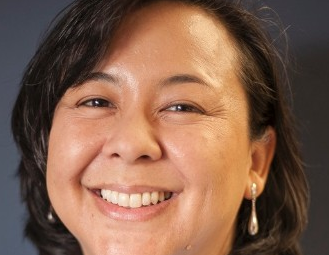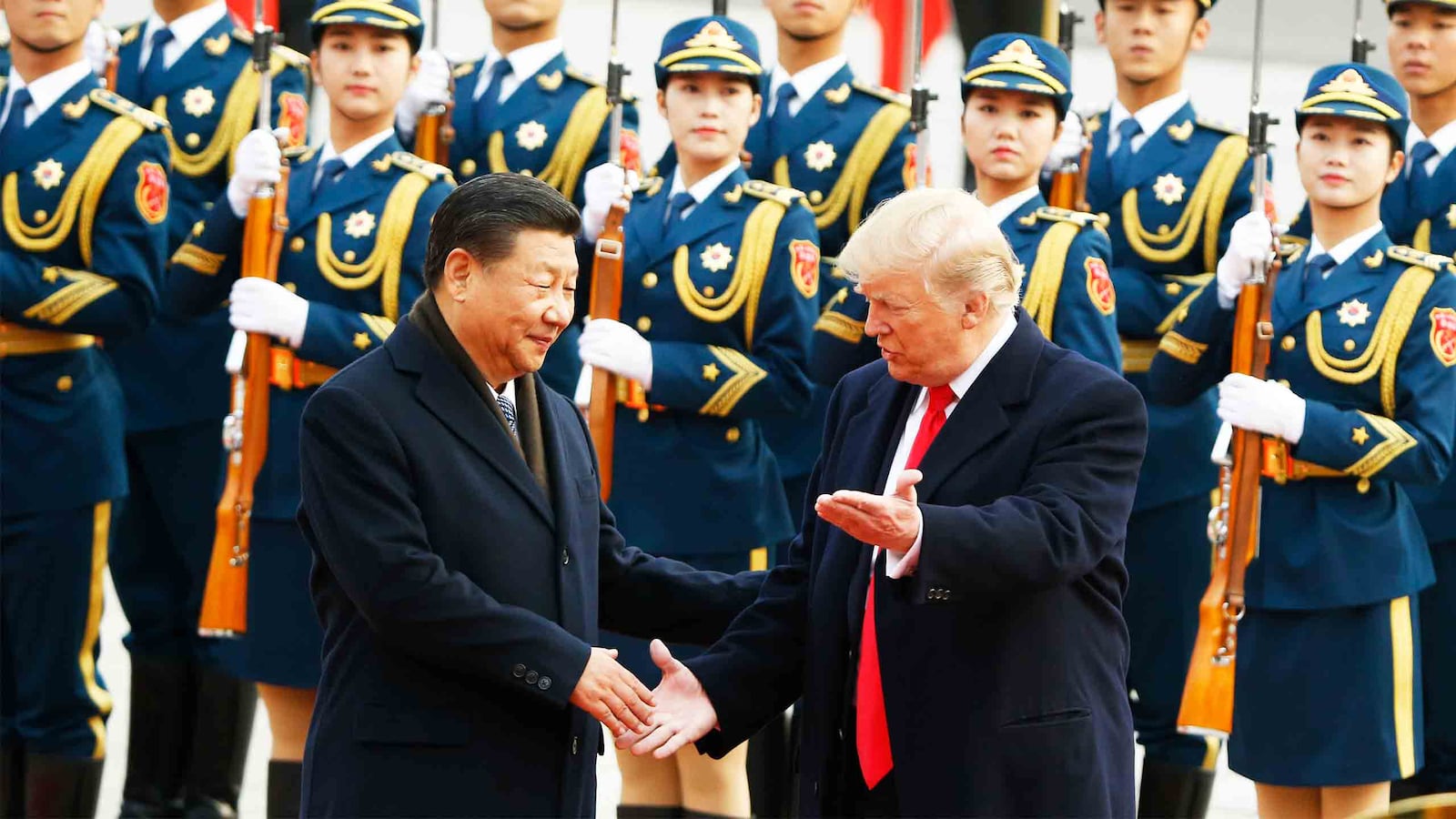During President Trump’s first official visit to Asia, human rights organizations around the world waited with anticipation to see if he would stand up to some of the most oppressive governments in the world and press them on human rights. To our great disappointment, it does not appear that he did so.
Governments led by Rodrigo Duterte of the Philippines and Xi Jinping of China have suppressed political opposition, jailed journalists, and killed those willing to speak against them. As we near the end of Trump’s first year in office, it is worth assessing the degree to which he has used these visits to placate authoritarian leaders as opposed to restoring U.S. leadership by lifting up human rights.
During the 2016 campaign cycle, some mistakenly believed that, if he were elected, Trump’s bombast would give way to a more moderated approach to governing. Unsurprisingly, he has doubled-down. Since his inauguration, we have witnessed his extraordinary threats to limit press freedom and jail political opponents, while launching verbal attacks against the judiciary. In this context, Trump’s apparent friendliness with leaders with appalling human rights records like Duterte and Xi and Vladimir Putin is not surprising, but deeply troubling.
Whether it was Trump’s America First inauguration speech, his decision to look the other way while Turkish security forces violently attacked protestors in the nation’s capital, or his warmongering UN debut, Trump’s presidency has undermined U.S. global leadership and given credibility to the agendas of oppressive regimes.
During the latter part of the 20th century, we witnessed the establishment and strengthening of democratic institutions, a greater respect for the rule of law, and an increase in independent judiciaries. From the demise of South Africa’s apartheid government, to the collapse of the Berlin Wall, and the end of the Cold War, deeply engaged civil society movements helped propel systemic change toward new freedoms and greater openness. While this change has not been linear or quick, it has transformed many governments and societies.
Fast forward to the mid-2000s. We saw the rise of social movements in post-Communist Eastern Europe such as the Orange Revolution (2005) in Ukraine. In 2011, populist uprisings took off throughout the Middle East, as protesters took to the streets in Egypt, Yemen, Bahrain, Libya, and Syria in the hopes of ending decades of oppression. Protestors employed the power of social media and cellphones to organize. Even when governments cut off access to the internet, they were able to document atrocities and share with the world stories of civil action and resistance.
With the exception of Tunisia, a relative success story, protests in countries in the Middle East and North Africa have yet to lead to greater protections of human rights that millions had hoped for. To the contrary, activists have been jailed, tortured, and killed for resisting their repressive governments. In Syria for example, since the Arab Spring, 250,000 Syrians have been killed according to the United Nations; 4 million now live as refugees in Turkey, Lebanon, and Jordan; and some 65,000 Syrians have gone missing after being arrested by government forces.
Today, we are witnessing a marked uptick in nationalistic rhetoric that has slowly spread around the world.
At the same time, human rights are at grave risk under a dire conflagration of global crises. Human rights defenders continue to be targeted at staggering rates. Journalists have been intimidated, jailed, and killed for shining a spotlight on deplorable actions by dictators, gangs, and state-sanctioned corruption. Tens of millions of people have been forced to flee their homes due to conflict and repression. In 2015, 156 human rights defenders were killed while being detained. In 2016, 61 countries around the world jailed their own citizens for simply exercising their human rights. And in the United States, 21 states introduced legislation in 2017 to restrict the right to protest.
Harrowing images of many of these crises, experienced by millions around the world, speak to a calamitous state of human suffering. There are deeply disturbing accounts and images, from children drowned while fleeing Syria; more than a half million Rohingya forced to flee their homes or risk death; and the brutal attacks on protestors in Venezuela as they resist the deepening repression by their government.
What’s clear is that we are in the midst of the largest global refugee crisis in recent memory, certainly since World War II. Millions of people, including children and the elderly, have been forced from their homes and are living in squalid and dangerous conditions across the Middle East, Central America, and Africa.
Amidst global unrest, U.S. leadership on human rights over the last nine months has been deferred in favor of other interests, raising concern across all political parties that the U.S. is ceding its leadership role.
Early this year, Trump chose to invite Duterte to the White House—a shameful display of kissing up to a bully rather than standing on principle. Rather than condemn Duterte’s sham “war on drugs” and rampant extrajudicial killings in the harshest of terms, Trump offered praise to a man currently terrorizing his own people. Duterte’s drug war is little more than an effort to consolidate power and commit unspeakable acts of violence against the poor. At the beginning of 2017, after Duterte took office, Amnesty reported that there had been more than 7,000 drug-related killings, with the Philippine National Police directly killing some 2,500 alleged drug offenders.
In two bizarre but telling moments during his Asia trip, we saw Trump holding hands with Duterte, and shortly thereafter, Duterte literally serenading Trump with a love song. What more can or should be said about Trump’s coziness with the world’s strongmen and the implications for international human rights?
President Trump’s actions present new and unprecedented challenges for defending human rights around the world, particularly as his conversations with leaders from the Philippines and China send a message that human rights abuses are not a concern of the U.S. government. No government should be beyond scrutiny, yet Trump’s embrace of dictators and oppressive regimes grants tacit permission for others to ignore or downplay abuses—some may even be emboldened to step up abuses without fear of condemnation or retribution by the United States.
Defenders of human rights around the world have often looked to the United States to stand with them and reject oppression. Unfortunately, the first nine months of Trump’s administration have aligned U.S. policy with human rights abusers and taken us back decades. Trump has both neglected and abdicated the United States’ global leadership role at a time when defending human rights is needed more than ever.
What’s always been clear is that people cannot passively rely on governments to stand up for human rights and protect the most vulnerable populations. Protection of human rights has often demanded movements of people, and mass uprisings, to win change. As we have seen in the courageous actions of activists around the world, even in the bleakest of times, individuals willing to stand up have made a difference. From civil rights activists in the United States to the anti-apartheid marches in South Africa, to the international women’s rights and LGBTI movements, the power of resistance has been proven time and again.
While President Trump might claim to be advancing U.S. policy interests by ignoring human rights and embracing those who abuse human rights, this is shortsighted and perilous. The people whose rights are being abused will remember the role of the United States in the fight for democracy and human rights. For the long-term national security of the country, and for the values that the Constitution upholds, we need to restore U.S. global leadership in the fight for human rights. And we need to stand with human rights movements around the world to demand accountability from all governments.





